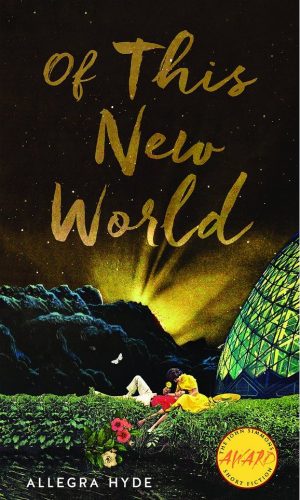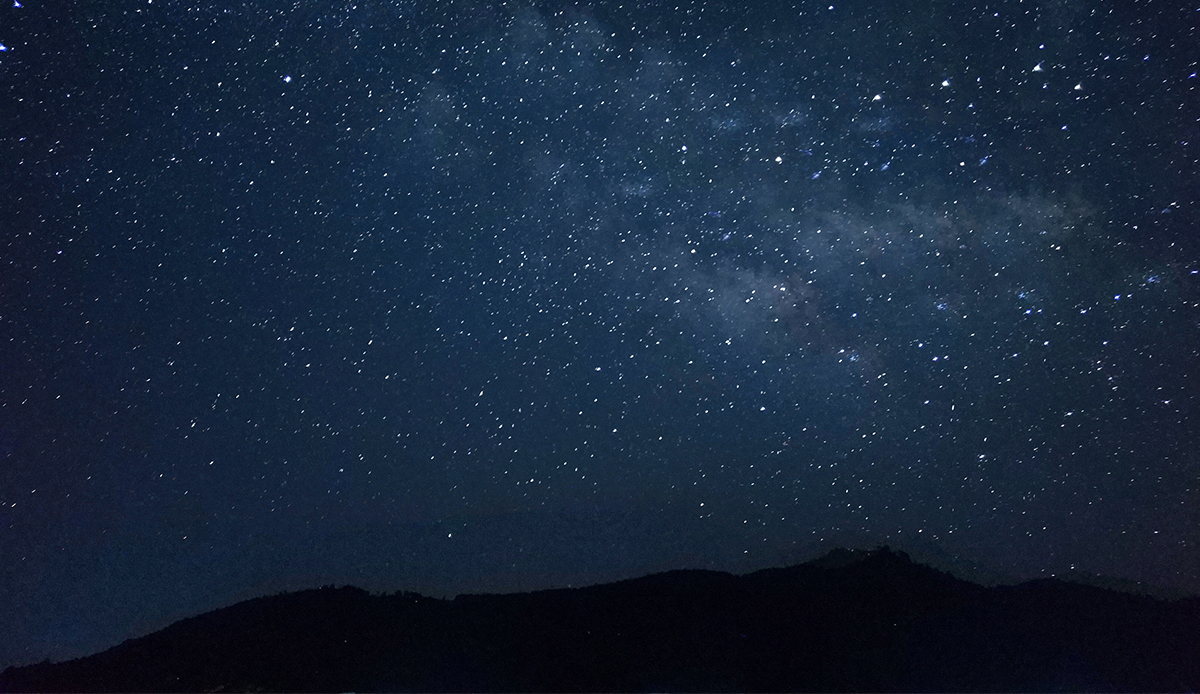Of This New World
“A Future, Still Waiting To Be Made”: A Review Of Of This New World By Allegra Hyde
Of This New World, by Allegra Hyde, U of Iowa Press, 2016, 124p, paperback $16.00

In her debut collection of short stories, Of This New World, winner of the University of Iowa Press’s 2016 John Simmons Short Fiction Award, Allegra Hyde allows elements of the human and the natural to rub up against one another, exploring the heat and conflict that arise between the two, and suggests through allegory that only something truly radical can begin to solve the problems of impending ecological collapse. In her first story, “After the Beginning,” Hyde retells the Adam and Eve narrative. The contempt and guilt that haunt Eve echoes the steep price humans now pay for the degradation of our planet. Throughout the story, small parenthetical thoughts occur to Eve—“(Yes, I remember when there was still only one danger) . . . (Yes, I remember disregarding that first danger)”—before her final resolve: “I will be good. I will feel shame and be bent by it.” Adam and Eve become children of sin, and their lust reveals their culpability (they’re human and have made mistakes), but it also points to a bigger realization: that we do know what we’re doing to the Earth and that we also have the power to stop it. Instead, we give in to temptation.
One of Hyde’s longer pieces, “Shark Fishing,” follows a character named Dawn who works on Camp Hope, a self-sustaining camp on a tropical island. Both Dawn and the man in charge of the camp, Adams, need money to keep the camp running until the researchers can find the massive sharks they believe to be roaming near the coast. Adams and Dawn (another version of Adam and Eve) teach young students, whose parents are in desirable positions of power, about natural cycles and how humans are destroying the planet. Dawn disagrees, however, not wanting to reach out to the very people they oppose. Instead, she calls for more diversity in the program, but Adams counters: “Hell! . . . I’d love to elevate all of humanity. But some ghetto baby isn’t going to knock Exxon off its throne!” Morality is thrown into chaos, turning the decision for the preservation of the environment upon itself. The narrative voice becomes increasingly ironic and desperate. Adams is snatched from the island on business, and Dawn allows her students access to a nearby bar where a Tropical Cruise Ship port is being built. She gives in to her own temptation for seemingly no reason except that it is there. Once more, the story interrogates human nature’s self-destructive tendencies, demonstrating that humans will destroy great things simply because they can. Through these ironies we see how we treat this planet and how we treat ourselves, our hopes, our wishes, and the things we care most deeply about.
The story “Americans on Mars!” fittingly ends this collection. Earth, on the cusp of total collapse and plagued with overpopulation and garbage, is deemed unsuitable for human life. The protagonist Rex takes to the skies with Tanya, the woman he has been paired with to populate the new colony on Mars. Riddled with guilt and unable to stop thinking of the brothers he left behind on Earth to die, Rex remains impotent, unable to go forth and procreate as he was instructed to do. The men and women of merit within the colony construct a systematic takeover of the planet, in the name of hope and progress for their fellow man. Hyde includes aptly ironic symbols, such as the Thanksgiving pageant in which Rex is the Mayflower and the would-be mother of his child Tanya is Pocahontas. By enunciating Rex’s inability to procreate on account of his guilt, both the religious and moral implications of such an act are accentuated. Yet Rex gives in to his primal urges: violence, the beating of his own chest, screaming; Tanya looks at him with longing. “I grab Tanya’s hand and squeeze. She squeezes back, her eyes opening up huge—like a bottomless lake or a starless sky – like a future, thick with unknowables, still waiting to happen.” Hyde again calls us to focus on what we have in front of us instead of marching forth in the name of “progress.” She asks us to look at what we’ve done to this planet before we do it to another.
Of This New World describes the struggle for survival, nature’s hold on us, and then flips the script. All too often in these stories, nature begins as an unstoppable force, but human interference brings nature a thread’s width away from death. Even the environmental activists in these stories, who try to prevent human destruction, end up being destructive in their own way, as Dawn demonstrates in “Shark Fishing.” These allegories of environmental degradation and collapse shine a bright light on human self-destructiveness. But there is another side as well: the implications of art (the publication of this book, for instance) and the possibilities for change that it brings. The question remains whether such calls to wake up to this reality will be answered.
Recommended
Nor’easter
Post-Op Appointment With My Father
Cedar Valley Youth Poet Laureate | Fall 2024 Workshop





